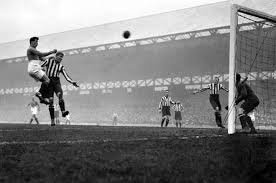
Discover the fascinating story of how football arrived in Spain, from its humble beginnings with British workers to becoming a national passion.
The Backstory of How Football Arrived in Spain
Football, or soccer as it's known in some parts of the world, is more than just a sport in Spain—it’s a way of life. Spain is home to some of the most successful clubs and iconic players in the history of football. But how did this beloved game arrive on Spanish shores? This article delves into the origins of football in Spain, tracing its journey from a British pastime to a national phenomenon, and explores the key figures, milestones, and cultural impacts along the way.
The Arrival of Football: The British Influence
Football’s Global Origins
Football as we know it today traces its roots to England, where the game was formalized in the mid-19th century. The British, with their expansive trade networks and industrial influence, spread the game to other countries, including Spain.
The Role of British Workers in Spain
In the late 19th century, British expatriates, particularly those working in mining and shipping industries, brought football to Spain. Cities such as Huelva, Bilbao, and Barcelona became hubs for these workers, who organized informal matches and introduced the sport to local communities.
The First Recorded Match in Spain
The earliest recorded football match in Spain took place in Huelva in 1890. Organized by British workers at the Rio Tinto mines, this match marked the beginning of organized football in the country. Recreativo de Huelva, established in 1889, emerged as Spain’s first football club, earning its nickname, “El Decano del Fútbol Español” (The Dean of Spanish Football).
The Spread of Football Across Spain
Catalonia: A Hotbed for Early Football
Barcelona quickly became a major center for football in Spain. The establishment of FC Barcelona in 1899 by Joan Gamper and other football enthusiasts marked a turning point in the sport’s development. The city’s cosmopolitan nature and strong connections to international trade made it an ideal breeding ground for the game’s growth.
Bilbao and the Influence of British Shipping
The Basque Country, particularly Bilbao, also played a significant role in the spread of football. British sailors and engineers working in the region introduced the sport to locals, leading to the formation of Athletic Club in 1898. Athletic Club became a powerhouse in Spanish football and a symbol of Basque pride.
Football’s Institutional Growth in Spain
Formation of Regional Leagues
As football gained popularity, regional leagues began to emerge in the early 20th century. These leagues served as precursors to the national competition, showcasing the growing interest and talent in Spanish football.
The Birth of La Liga
In 1929, the Spanish football league system was officially established with the creation of La Liga. This marked a significant milestone in the sport’s history, uniting clubs from across the country in a competitive format.
The Influence of Copa del Rey
The Copa del Rey, established in 1903, became one of the most prestigious tournaments in Spanish football. It provided a platform for clubs to compete on a national stage and helped popularize the sport further.
Key Figures in Early Spanish Football
Joan Gamper
The Swiss founder of FC Barcelona, Joan Gamper, played a pivotal role in establishing football as a prominent sport in Spain. His vision and leadership helped lay the foundation for one of the world’s most successful clubs.
William Alexander Mackay
As a founder of Recreativo de Huelva, Mackay was instrumental in introducing football to Spain. His efforts ensured that the sport took root in the country and gained recognition among locals.
Cultural Impact of Football in Spain
A Unifying Force
Football transcended its British origins to become a unifying force in Spain. The sport brought people together across social, economic, and regional divides, fostering a shared sense of identity and pride.
Expression of Regional Identity
For regions like Catalonia and the Basque Country, football became a means of expressing cultural and political identity. Clubs such as FC Barcelona and Athletic Club became symbols of regional pride and resistance.
The Rise of Rivalries
As football grew in popularity, intense rivalries began to emerge. The rivalry between Real Madrid and FC Barcelona, known as El Clásico, is one of the most iconic in world football and reflects deeper social and political divides.
The Professionalization of Spanish Football
Economic Transformations
The professionalization of football in the mid-20th century transformed the sport into a lucrative industry. Clubs began investing in infrastructure, talent development, and marketing, elevating Spanish football to global prominence.
International Success
Spanish clubs, particularly Real Madrid and FC Barcelona, achieved remarkable success on the international stage, winning numerous UEFA Champions League titles and establishing themselves as global football giants.
Challenges and Resilience
Civil War and Political Turmoil
The Spanish Civil War (1936–1939) and subsequent dictatorship disrupted the growth of football. Despite these challenges, the sport remained a source of hope and resilience for the Spanish people.
Economic Crises
Economic challenges in the late 20th and early 21st centuries tested the financial stability of many clubs. However, football’s enduring popularity ensured its survival and continued growth.
Modern Football in Spain
A Global Powerhouse
Today, Spain is home to some of the world’s most famous clubs, players, and coaches. The country’s domestic league, La Liga, attracts top talent from around the globe, while the national team has achieved historic success, including winning the FIFA World Cup in 2010.
The Legacy of British Influence
The British influence on Spanish football remains evident in the sport’s foundational clubs and traditions. Recreativo de Huelva, Athletic Club, and other early teams serve as reminders of football’s journey from Britain to Spain.
Conclusion: A Story Worth Celebrating
The story of how football arrived in Spain is a tale of cultural exchange, resilience, and passion. From its humble beginnings with British workers to its status as a global powerhouse, Spanish football has come a long way. Its rich history continues to inspire players and fans, ensuring that the sport remains a cornerstone of Spanish culture.
Celebrate the rich history of Spanish football and honor its pioneers. Join us in supporting this incredible journey by showing your passion with ACE66 today!

0 Comments
Post Comment